Can potato chip bags be recycled?
In most cases, the answer is yes! While chip bags aren’t recyclable through most general-purpose recycling programs (your recycle bin that you take to the curb), special plastic film recycling programs are common and can handle chip bags.
But that’s not the whole story. Read on to learn when and how to recycle chip bags, what bags are made out of, and what other similar types of bags are in the same category.
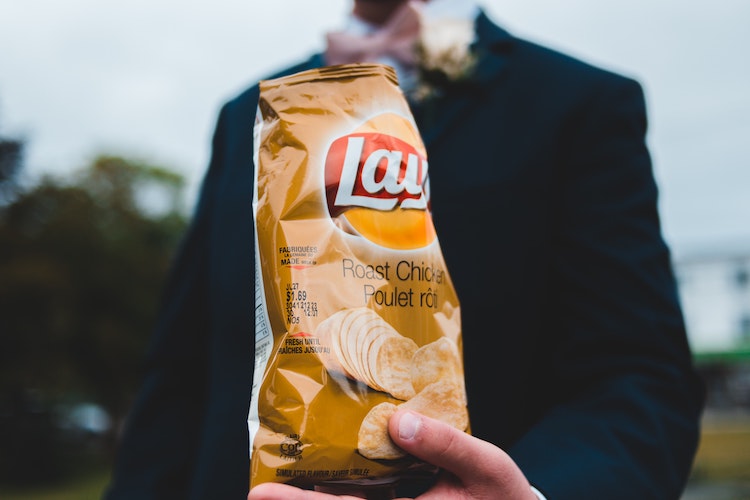
What material are potato chip bags made of?
A tremendous variety of plastic materials can be manufactured in a “plastic film” form.
Chip bags are not destined for your regular recycling bin can because they most often are constructed of aluminum laminated with polypropylene. If you look inside the empty bag and see a silver-metallic color – you know you’re dealing with a metalized form of plastic.
There are different types of plastic films that can be coated with an extremely thin layer of aluminum. The most common alternative to polypropylene is low density polyethylene film. (learn more about the difference between polypropylene and polyethylene)
This material is also known as “metalized polypropylene”, and unfortunately snack bags made from it are not so simple to process.
How is metalized polypropylene made?
The process to make metalized polypropylene is called “physical vapor deposition”. The aluminum is heated until it evaporates in a vacuum, and then physically bonds to cold plastic film.
Why use this type of bag?
The main advantage of using this metal/plastic hybrid product is to gain positive attributes of each. Aluminum foil is extremely brittle and wouldn’t be useful by itself as a food wrapper/container for mass-produced products shipped and sold on shelves. It’s great at home and in your fridge, but not for distribution.
However, the reason it’s useful for protecting food in the home isn’t about distribution. It’s useful because it is impermeable (doesn’t allow moisture or air in) and completely blocks light. Many food products go stale in the presence of air or moisture, so completely blocking that is a plus. Plastic films are good, but not perfect at blocking air and moisture.
Also, plastic is see-through, meaning various amounts of light passes through it. Many food products, including those containing natural oils, are susceptible to degradation in light. The oil will break down and go rancid eventually, and light accelerates that process.
It’s undoubtedly a good thing that most chip bags are made out of metalized polypropylene, otherwise your favorite potato chip would likely be stale and rancid. The thing that’s undoubtedly a bad thing is that so many empty bags end up in the trash, the dump, and eventually the ocean.
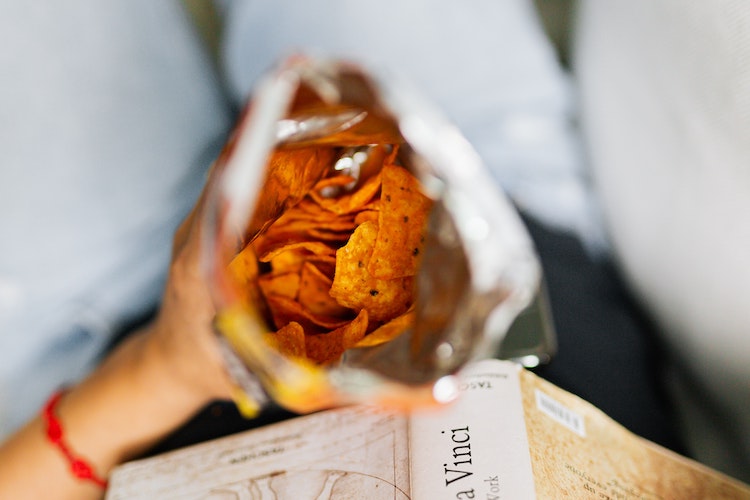
What objects similar to chip bags can be recycled?
There are many other objects that are made from the same aluminum laminated with plastic film as potato chip bags.
- Other types of food packaging – candy bar wrappers, bags of ground coffee, Capri Sun juice boxes
- Gift bags – I have a kid who attends a lot of parties. Small gift bags that are passed out at these parties are often metalized.
- Mylar emergency blankets – often referred to as “space blankets”, these are made of Mylar – metalized polyester (aka PET – polyethylene terephthalate)
- Balloons – many of the balloons that you find at a party store, anything that looks metallic or has an image on them are made of mylar.
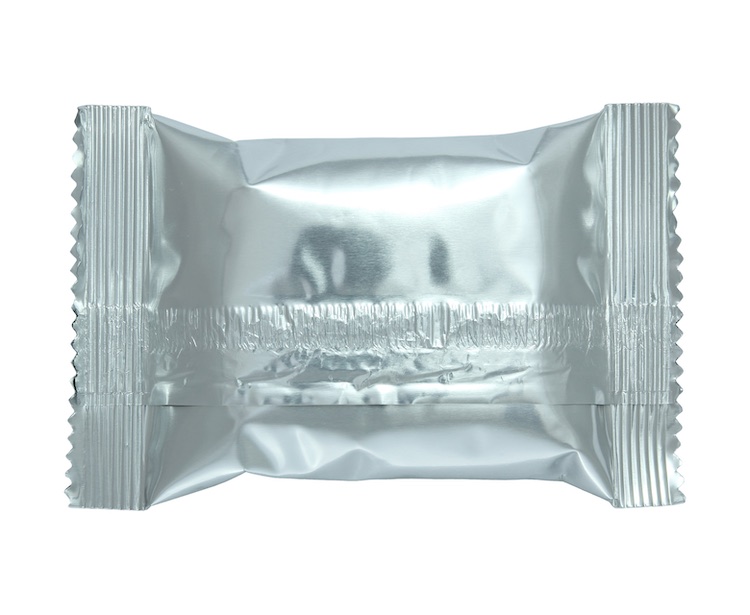
Why is recycling chip bags so difficult?
There are two high-level challenges with recycling chip bags:
1. Plastic Films ruin recycling machinery
Not sure if you’ve ever seen the inside of a recycling facility, but they are filled with large, complex, expensive, energy-intensive machines. It’s a sight to behold. It’s also a massive problem when the entire plant has to temporarily stop running because the conveyor belts that intake the raw material get so jammed up with plastic bags that they seize up.
Think about how strong one grocery bag is. Wrap two ends around your hands and try to tear it in half through the middle. You likely can’t even tear one bag. Now imagine hundreds of them getting caught in the moving parts of a huge system.
These grocery bags are made most often from low density polyethylene film – one of the strongest plastics per weight. It’s easy to see how they could cause so many problems.
Because of this, it’s nearly a guarantee that the city recycling program that you use for your bottles, cans, glass, and paper will not accept plastic bags or plastic film of any kind. That unfortunately includes potato chip bags.
2. Separating the layers
There is no easy, low-cost process to separate aluminum from polypropylene or polyester. First – a worker in the recycling factor needs to identify what specific materials are present in the object. Sometimes that will be easy, sometimes not.
Once it’s been identified, there needs to be a way to separate the layers. This is a physical process, often performed by a specialized machine, but it isn’t always perfect.
Think about a time you’ve seen an old, layered plastic chip bag start to separate. If you try to pull the layers apart it kind of works, but not perfectly. Likewise, even with the machines, some of the aluminum will remain on the plastic layer and some of the plastic will remain on the aluminum layer. This is problematic!
Either way, of the material that is successfully split – only the plastic will then go on to be recycled. The aluminum layer, despite being an “infinitely recyclable material”, ends up being thrown away because the recycling process requires purity that can’t be accomplished with the flawed layer separation process.
An additional problem with this form of recycling is that it is highly energy-intensive, and thus, expensive. One of the most important reasons to recycle is to minimize the amount of raw material we need to extract from our planet. However, is this specific recycling a net positive in terms of environmental impact if it uses a ton of energy? Possibly not.
Hopefully, advances in AI will enable robotic systems that are able to much more efficiently and cheaply deal with this separation in a dynamic fashion.
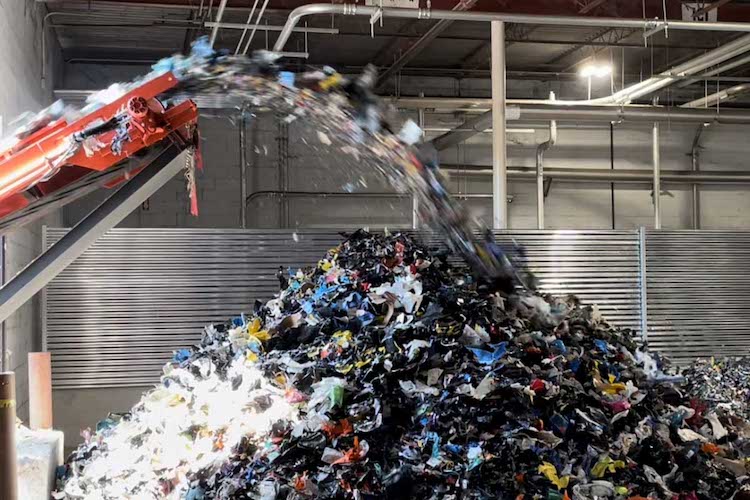
How can empty potato chip bags be recycled?
The answer for what to do with empty potato chip bags is fairly straightforward – make sure it’s clean and dry, and take it to your nearest plastic film recycling center.
Where can I take plastic films for recycling?
Plastic bags are provided when shopping nearly everywhere. Despite the fact that some forward-thinking cites/countries are introducing bans or taxes on plastic bags, they are still nearly ubiquitous globally.
Fortunately, many of the large companies that give millions of plastic bags each year are starting to realize the negative environmental impact of those bags, and are offering plastic bag and film drop-off facilities. At my local grocery store, there is a bin right outside the doors that takes clean, dry, and empty bags and films.
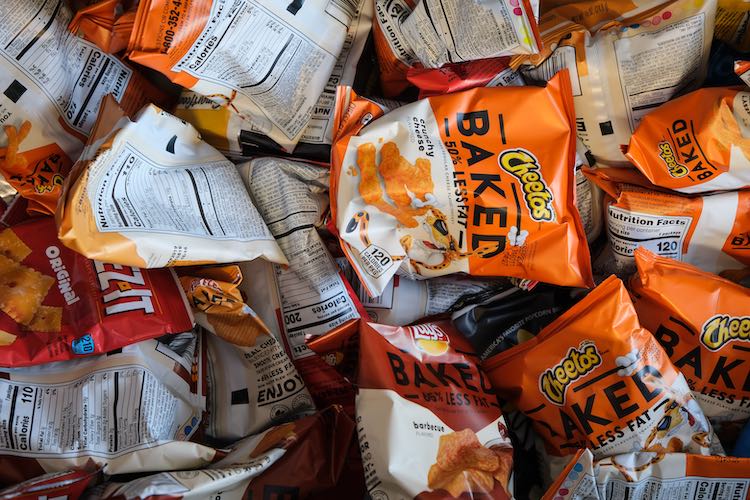
The following is a very short list of common grocery stores and retailers that recycle plastic film and bags, including chip bags:
- Albertsons
- Harris Teeter
- H-E-B
- Home Depot
- Kohl’s
- Publix
- QFC
- Ralphs
- Randalls
- Safeway
- Sprouts Farmers Market
- Target
- Vons
- Wal-Mart Supercenter
For a complete database of plastic bag/film recycling locations, check out BagandFilmRecycling.org
Now that you can answer the question are potato chip bags recyclable, stop throwing your empty bags away and take them to one of the locations listed above!
Other options for dealing with potato chip bags
Ultimately, potato chips are not a healthy food. So if we have any recommendation at all, it would be to do the right thing for your health and the environment and choose a snack that doesn’t come wrapped in plastic – like a delicious piece of fruit! Drop the chips and some weight, and you’ll make your doctor and the planet happy.
I assume, like me, you’re not ready to give up potato chips entirely. If you happen to live in an area that doesn’t have plastic film/bag recycling you can do the next best thing – reuse! A quick search uncovers a huge number of DIY projects you can do at home with empty potato chip bags. My favorite project converts chip bags into sleeping bags for the homeless. You’re limited only by your imagination, and possibly by the amount of potato chips you eat in a week.
Whatever you do – keep those chip bags out of the landfill!